How Smoking Affects Your Health.....
No matter how you smoke it, tobacco is dangerous to your health. There are no safe substances in any tobacco products, from acetone and tar to nicotine and carbon monoxide. The substances you inhale don’t just affect your lungs. They can affect your entire body.
Smoking can lead to a variety of ongoing complications in the body, as well as long-term effects on your body systems. While smoking can increase your risk of a variety of problems over several years, some of the bodily effects are immediate.
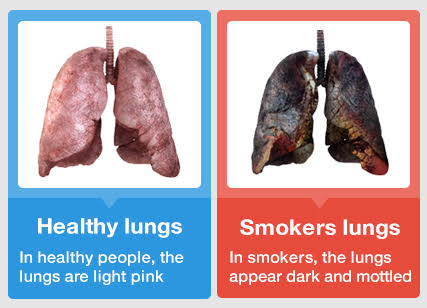
Your lungs can be very badly affected by smoking. Coughs, colds, wheezing and asthma are just the start. Smoking can cause fatal diseases such as pneumonia, emphysema and lung cancer. Smoking causes 84% of deaths from lung cancer and 83% of deaths from chronic obstructive pulmonary disease (COPD).
Learn more about the symptoms and overall effects of smoking on the body below.
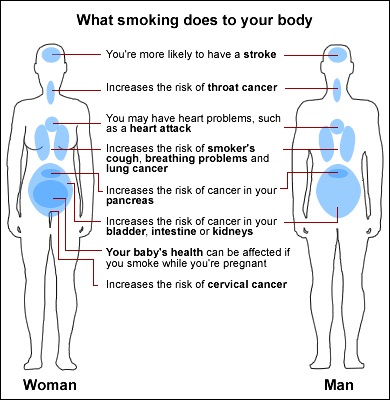
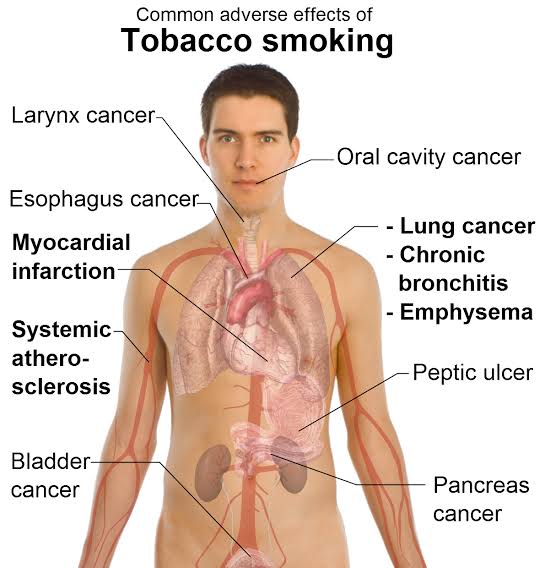
Tobacco smoke is incredibly harmful to your health. There’s no safe way to smoke. Replacing your cigarette with a cigar, pipe, or hookah won’t help you avoid the health risks.Cigarettes contain about 600 ingredients, many of which can also be found in cigars and hookahs. When these ingredients burn, they generate more than 7,000 chemicals, according to the American Lung Association. Many of those chemicals are poisonous and at least 69 of them are linked to cancer. In the United States, the mortality rate for smokers is three times that of people who never smoked. In fact, the Centers for Disease Control and Prevention (CDC) says that smoking is the most common "preventable cause of death" in the United States. While the effects of smoking may not be immediate, the complications and damage can last for years. The good news is that quitting smoking can reverse many effects.
Central nervous System

One of the ingredients in tobacco is a mood-altering drug called nicotine. Nicotine reaches your brain in mere seconds and makes you feel more energized for a while. But as that effect wears off, you feel tired and crave more. Nicotine is extremely habit-forming, which is why people find smoking so difficult to quit.
Physical withdrawal from nicotine can impair your cognitive functioning and make you feel anxious, irritated, and depressed. Withdrawal can also cause headaches and sleep problems.
Respiratory System

When you inhale smoke, you’re taking in substances that can damage your lungs. Over time, this damage leads to a variety of problems. Along with increased infections, people who smoke are at higher risk for chronic nonreversible lung conditions such as:
emphysema, the destruction of the air sacs in your lungs
chronic bronchitis, permanent inflammation that affects the lining of the breathing tubes of the lungs
chronic obstructive pulmonary disease (COPD), a group of lung diseases
lung cancer
Withdrawal from tobacco products can cause temporary congestion and respiratory discomfort as your lungs and airways begin to heal. Increased mucus production right after quitting smoking is a positive sign that your respiratory system is recovering.Children whose parents smoke are more prone to coughing, wheezing, and asthma attacks than children whose parents don’t. They also tend to have higher rates of pneumonia and bronchitis.
Cardiovascular System
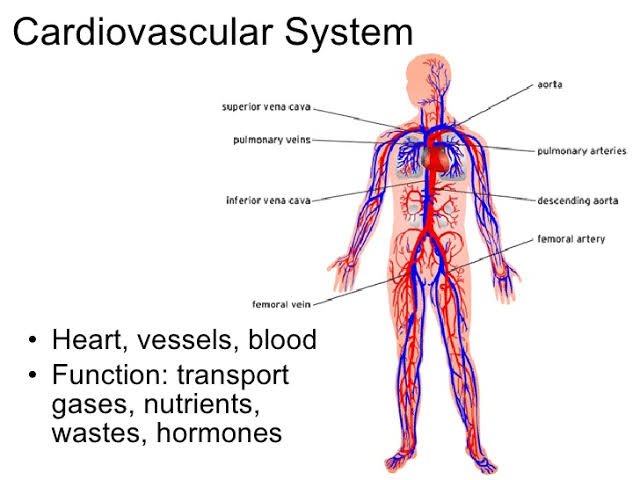
Smoking damages your entire cardiovascular system. Nicotine causes blood vessels to tighten, which restricts the flow of blood. Over time, the ongoing narrowing, along with damage to the blood vessels, can cause peripheral artery disease.
Smoking also raises blood pressure, weakens blood vessel walls, and increases blood clots. Together, this raises your risk of stroke.
You’re also at an increased risk of worsening heart disease if you’ve already had heart bypass surgery, a heart attack, or a stent placed in a blood vessel.
Smoking not only impacts your cardiovascular health, but also the health of those around you who don’t smoke. Exposure to secondhand smoke carries the same risk to a nonsmoker as someone who does smoke. Risks include stroke, heart attack, and heart disease.
**Integumentary System **
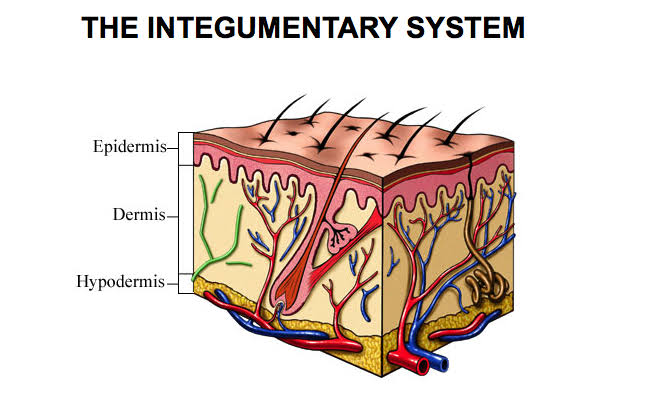
The more obvious signs of smoking involve skin changes. Substances in tobacco smoke actually change the structure of your skin. A recent study has shown that smoking dramatically increases the risk of squamous cell carcinoma (skin cancer).
Your fingernails and toenails aren’t immune from the effects of smoking. Smoking increases the likelihood of fungal nail infections.
Hair is also affected by nicotine. An older study found it increases hair loss, balding, and graying.
Digestive System
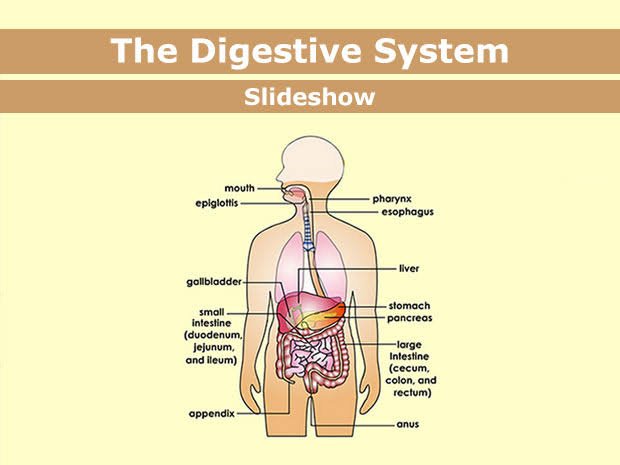
Smoking increases the risk of mouth, throat, larynx, and esophagus cancer. Smokers also have higher rates of pancreatic cancer. Even people who “smoke but don’t inhale” face an increased risk of mouth cancer.
Smoking also has an effect on insulin, making it more likely that you’ll develop insulin resistance. That puts you at increased risk of type 2 diabetes and its complications, which tend to develop at a faster rate than in people who don’t smoke.
Sexuality and Reproductive System
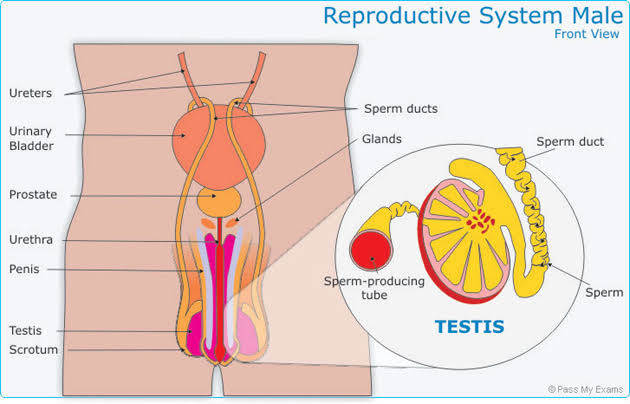
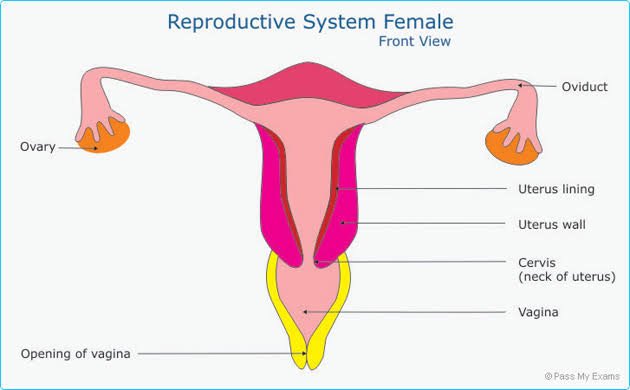
Nicotine affects blood flow to the genital areas of both men and women. For men, this can decrease sexual performance. For women, this can result in sexual dissatisfaction by decreasing lubrication and the ability to reach orgasm. Smoking may also lower sex hormone levels in both men and women. This can possibly lead to decreased sexual desire.
Takeaway
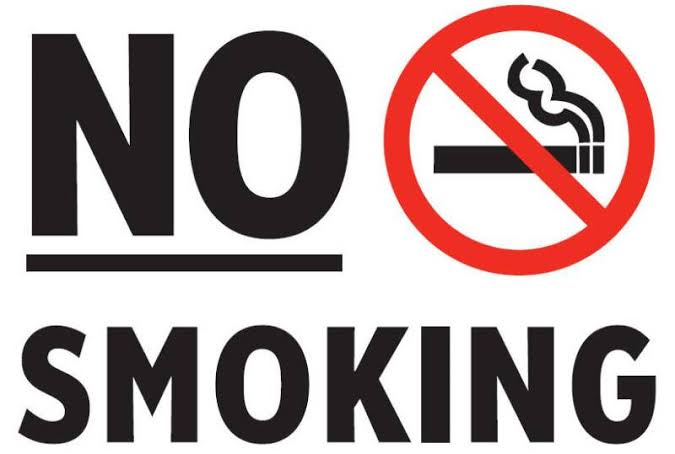
Quitting smoking is difficult, but your doctor can help you make a plan. Ask them for advice. There are a variety of nonprescription and prescription medications that can help you quit. You can also turn to our smoking cessation resource center, which has advice, stories from others, and more. There are both short and long-term benefits to quitting smoking. Since smoking affects every body system, finding a way to quit is the most important step you can take to living a longer and happier life.
Thank You @sujoy1995
Nice
Wow nice news
Plz vote me